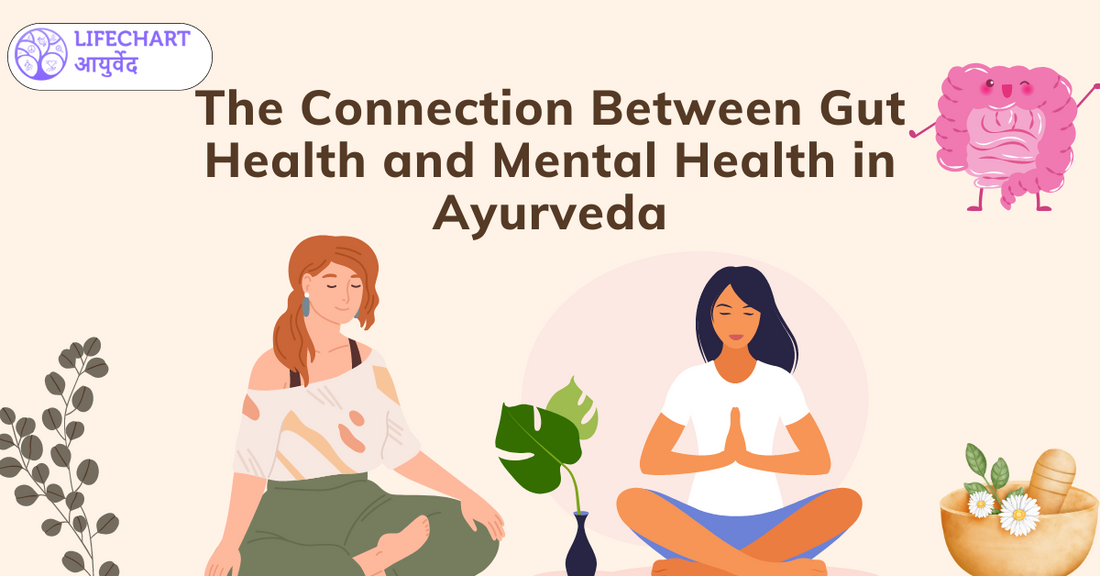Ayurveda is an ancient Indian practice that promotes optimal health and wellness through a holistic approach encompassing diet, lifestyle, and natural remedies. One of the fundamental principles of Ayurveda is that there is a deep connection between the mind and body and that the two are inextricably linked. This is especially true when it comes to gut health and mental health.
According to Ayurvedic principles, the gut is considered the second brain. The digestive system is home to millions of nerve cells communicating with the brain via the vagus nerve. This gut-brain connection is crucial in regulating our digestive health and mental and emotional well-being.
Often we ignore symptoms of poor gut health, including physical symptoms such as bloating, constipation, and diarrhea. However, it can also have a profound impact on our mental health. Studies have shown that people with gut-related disorders such as irritable bowel syndrome (IBS) and inflammatory bowel disease (IBD) are more likely to experience depression and anxiety.
This is because the gut and the brain communicate via neurotransmitters such as serotonin and dopamine. Most of the body's serotonin is produced in the gut, not the brain. When our gut health is compromised, it can lead to a decrease in serotonin production, which can have a negative impact on our mood and mental well-being.
Ayurvedic practices can help support both gut health and mental health. This is because Ayurveda recognizes the mind's and body's interconnectedness and works to address imbalances in both areas. One of the critical ways that Ayurveda promotes gut health is through diet. In Ayurveda, food is considered a medicine, and different foods are recommended based on an individual's unique constitution or dosha.
For example, someone with a vata dosha (associated with air and ether) may benefit from warm, grounding foods such as root vegetables and soups. In contrast, someone with a pitta dosha (associated with fire) may benefit from cooling foods such as cucumber and coconut. Ayurveda also emphasizes the importance of mindful eating, which can help improve digestion and reduce stress.
In addition to diet, Ayurveda promotes lifestyle practices supporting gut and mental health. These practices include yoga, meditation, and pranayama (breathing exercises), all of which have been shown to reduce stress and promote relaxation. Ayurveda also emphasizes the importance of maintaining a regular daily routine, which can help regulate the body's natural rhythms and promote overall health and well-being.
At LifeChart Ayurveda, we believe gut health is the foundation of overall health and well-being. We offer personalized Ayurvedic consultations from 500+ doctors. Our experts provide treatment based on each individual's unique needs and constitution. Our team of experienced Ayurvedic practitioners can help identify the root cause of gut-related issues and provide natural remedies and lifestyle recommendations to promote optimal gut health and mental well-being.
If you're struggling with gut-related issues or mental health concerns, consider incorporating Ayurvedic practices into your daily routine. LifeChart Ayurveda is here to help you on your journey to optimal health and well-being.












